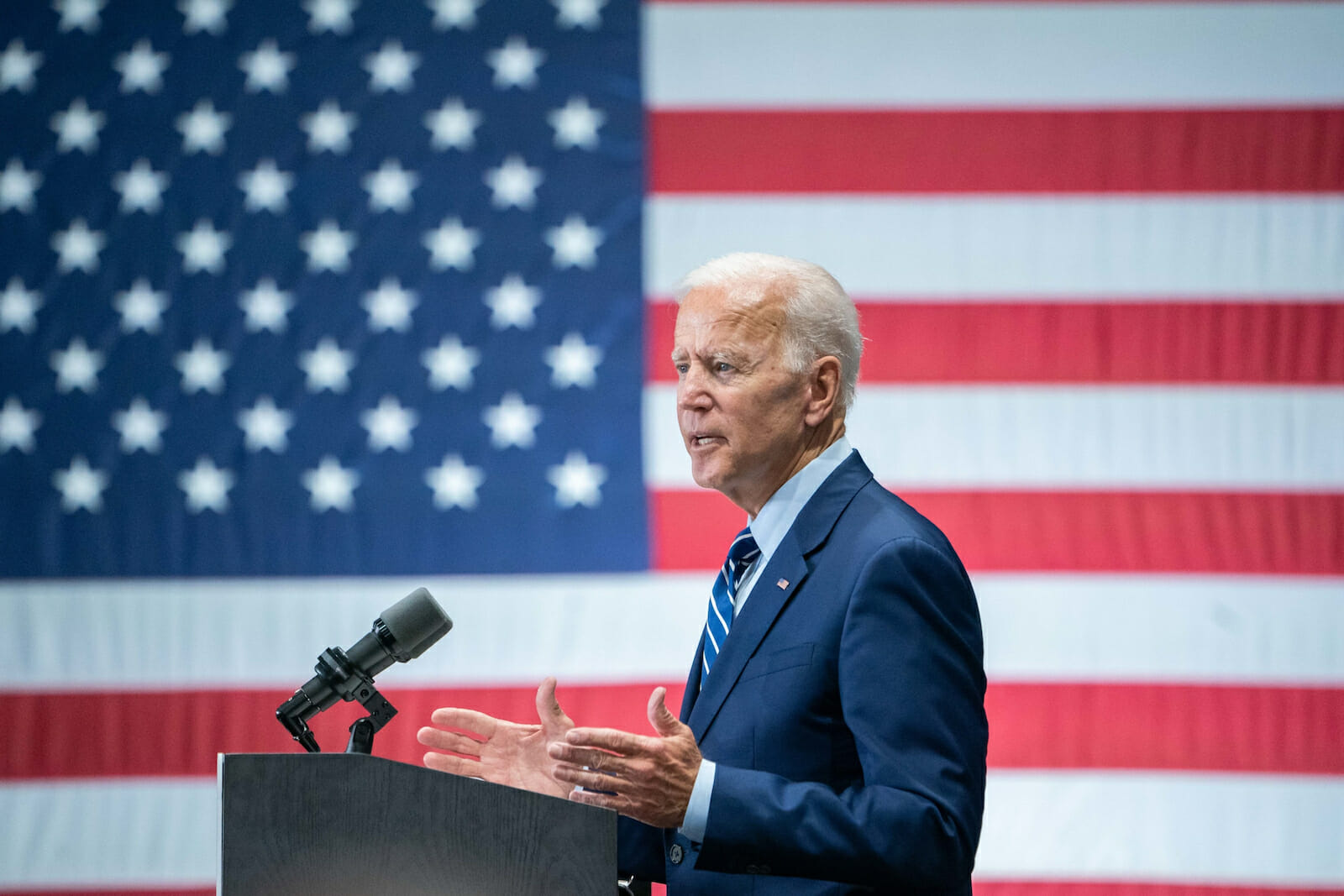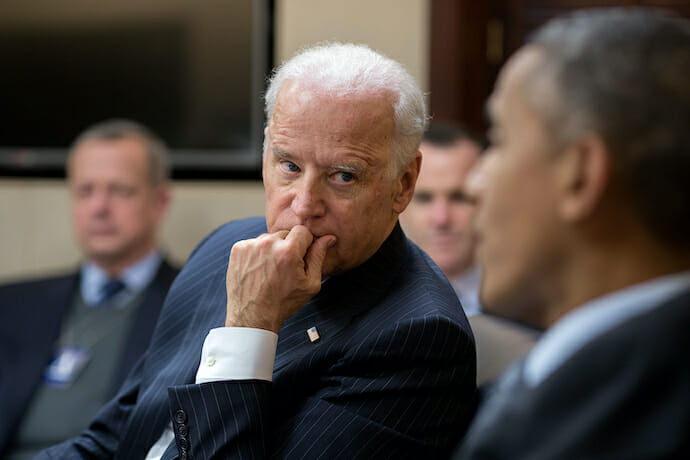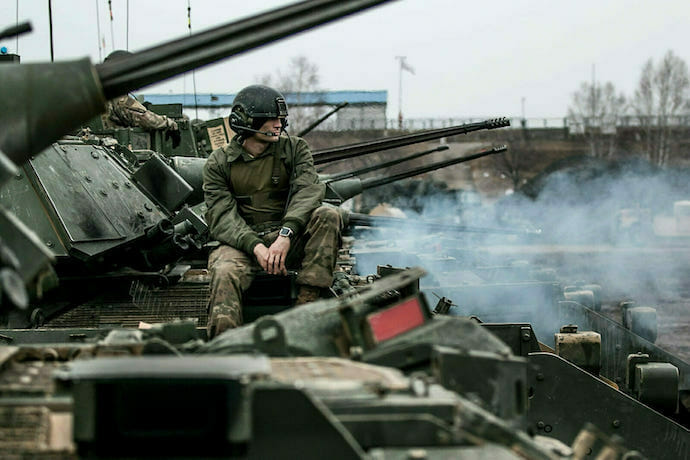
5 Focus Areas: A Road Map for Biden-era Statecraft
The election of Joe Biden represents not only a repudiation of Donald Trump but also an opportunity to start anew in foreign and defense policy. Though the last four years were ostensibly guided by the overarching ideas of hyper-nationalist populism, the fact of the matter is that the Trump administration worked under no true guidance other than what seemed like a good idea at the time. Long term ramifications were often ignored for short term wins of dubious quality, and decades of American foreign policy were upended for reasons that few outside of the Trump administration ever truly understood.
Come January 20, a new foreign policy should be adopted befitting a new administration aiming to demonstrate the better angels of the United States to its own populace and the world at large. If the Biden administration wants to be serious about overturning four years of chaos and short-sighted decision making, there are five crucial areas, all building upon one another, that should be focused on by a Biden White House: rebuilding trust; strengthening alliances; asserting interest; containing rivals; the new world.
1. Re-Establish American Trustworthiness
Foreign policy under the Trump administration was defined by a lack of definition so much as it was any creed like “America First.” Major foreign policy decisions were made with little consideration to norms or even repercussions. In four years, the United States went from a trusted leader to a loose cannon. Reckless disregard did significant damage to the trustworthiness of Washington among allies, enemies, and neutral observers alike. Trust is the one currency in foreign relations, and Trump squandered this invaluable capital.
Though Trump’s damage will take years to repair, the Biden administration should immediately make tangible acts of good faith on the world stage. Rejoining the World Health Organization should be the first, with a commitment to share any and all pertinent information from ongoing COVID-19 vaccine trials. Other major steps would be returning to major, multilateral agreements that were settled in good faith with partners around the world. The Paris Climate Accord is one such agreement, and reaffirming American commitment to this will be a major performative act that will reassure nations around the world that the U.S. is a reliable diplomatic partner.

Perhaps the most important steps the Biden administration could take would be to rejoin the Joint Comprehensive Plan of Action, or the Iranian nuclear agreement. From the American intelligence community to international observers, all attest that the Iranian government maintained full compliance with this agreement. Undoubtedly the most controversial of all actions on this list, recommitting the United States to this act demonstrates that Washington’s word stands for something on the world stage, and may serve to prove that moderate governments in Tehran can accomplish more for Iran than any hardliner can. Both inside of Iran and on the world stage, the JCPA would create goodwill that will serve America well in the years to come.
These first steps would demonstrate that America is once again a reliable ally and an honest broker, a prerequisite for every other course of action detailed below. The single most important thing Joe Biden can do in the next coming months is to tirelessly endeavor to rebuild American trust from the world as a whole.
2. Reaffirm Alliances, Atlantic and Pacific Alike
For the last four years, while dictators and tyrants were festooned with praise and adoration, relations across the Atlantic and the Pacific were incredibly strained. Allies openly questioned whether they could or should rely on America. Beyond being incredibly short-sighted, this behavior eroded the credible deterrent these alliances embody, which in turn emboldened our enemies abroad. Washington did nothing to stop artificial islands in the South China Sea, missile development in Pyongyang, or the ongoing war in the Donbass.
These alliance are the cornerstone of a worldwide security network that protect hundreds of millions of lives and functioned exactly as intended for the better part of a century. They are, in short, the best example of American diplomacy during the Cold War and the 21st century. Though forests have been felled to provide the paper for think pieces on the demise of these institutions, time and time again they have demonstrated remarkable flexibility in purpose and continue to provide a bulwark against aggressive, expansionist, illiberal powers in both the Atlantic and Pacific. The Biden administration must recommit the United States to these keystones of American statecraft in the years to come.
In Europe, NATO must see a renewed commitment from the United States alongside simultaneous pushes for our allies to increase defense spending. American commitment should come with visits to NATO headquarters by high-profile administration officials, as well as demonstrable, real proof that the Alliance is alive and well in American military calculus. One of the first actions to be considered would be the deployment of combat troops to Poland or the Baltic republics to demonstrate our dedication and resolve to front-line allies who spend every day with Moscow looming large on their periphery.
In the Pacific, the intricate network of bilateral defense agreements must be shored up immediately with words and forward-deployed troops in South Korea, Japan, and Australia. An increase in the Marine presence in Darwin, Australia, and further efforts to create coordinated defense policies with Singapore, Malaysia, India, and other nations wary of Beijing’s neo-colonialism. Increased exercises with partners in Southeast Asia, combined with new deals for armaments transfers through the area will send an unmistakable message that the United States is not merely a Pacific power, but one dedicated to ensuring that the Middle Kingdom approach of domination remains an element of the past.
3. Assert U.S. Statecraft, Everywhere
It is one thing to rebuild trust in American intentions and diplomacy. However, these efforts mean nothing if the U.S. chooses to relinquish its role on the world stage as it did under the Trump administration. Every room, every meeting, every procedural debate must have an American presence for the next four years, no matter how insignificant it may seem. Nature abhors a vacuum, and statecraft even more so. Every meeting that the U.S. foregoes is yet another arena where China, Russia, or some other adversary will seize the chance to assume control.

A number of conflicts have arisen around the world, and those that have, have gone unaddressed the last four years. Each of these offers the opportunity for America to prove its diplomatic prowess. Even if an American solution to these issues is not adopted, any effort by Washington demonstrates both its wide-ranging worldwide interests and its willingness to take a stake in any threat to order and peace. The ongoing war in eastern Ukraine offers both an opportunity to exercise U.S. diplomatic prowess while also demonstrating our commitment to the 1994 Budapest Memorandums. Likewise, the growing risk of civil war in Ethiopia offers the opportunity to avert tragedy while simultaneously supporting an indispensable partner for peace in the Horn of Africa.
Ensuring the smooth transition of Brexit may be one of the more surprising arenas for the United States to offer its diplomatic input. Ostensibly an issue between Brussels and London alone, the ramifications of Brexit done poorly will have impacts on numerous issues of high importance to Washington. The Good Friday Agreements remain one of the most underappreciated successes of American foreign policy, and the numerous allies on both sides of the divide have deep ties to the United States. While it is not Washington’s place to enter the fray, it may be worth offering American assistance in navigating the secondary and tertiary effects from a series of negotiations that seem to have no end in sight yet stand to utterly reshape transatlantic relationships that have stood for over 70 years.
4. Contain the Rising Threats
If done correctly, all the previous steps lead directly to the emergence of a new global coalition lead by Washington in direct opposition to threats from illiberal states such as Russia and China. The former has dedicated itself to upending the international consensus through destabilization, creating a ring of chaos running from the Baltic to the high plains of Kyrgyzstan. Combined with the intentional meddling in elections around the world, Russia has shown that no border, no norm, nothing short of the threat of direct force will stop them. Putin plays neither chess nor checkers; he merely distracts you until he can flip the table over, trapping you underneath and setting the whole damn house on fire.
China, meanwhile, has seen the rise of a perverse adherence to the world order as though through a glass, darkly. Beijing has shown itself willing to engage with any number of partners around the world through international institutions, modern financial instruments, and active participation in any number of bilateral or multilateral arenas. Yet all of these efforts come with a form of neo-colonialism to a resurgent Middle Kingdom statecraft. The Belt and Road Initiative comes with crippling foreign debt, and efforts to develop Africa results in resource extraction more similar to outright colonialism than anything else. Socialism with Chinese characteristics, indeed.
Worldwide, these two nations combined represent a significant threat to the rules-based international order. This order, under which humanity has seen its single longest period of peace and economic prosperity, is seen as an enemy by Moscow and a space to conquer by Beijing. For years, both parties have acquiesced to these attitudes over the better part of two decades. However, there is now an opportunity to capture the growing global sentiment that these two states don’t offer so much an alternative to the current world order so much as they offer a downward spiral of resource gluttony and might-make-right barbarism. The Biden administration would be well served to capitalize on this, once they reestablish trust in American statecraft and shore up the power inherent in its alliances.
5. Recommit to the New World
Since September 11th, America’s own backyard has been pushed further and further down the list of priorities for Washington. Aside from quixotic crusades against NAFTA by the Trump administration or the occasional verbal lob hurled towards Caracas, the New World has been largely ignored by the United States for the better part of two decades.
Yet, one of the most potent issues in the United States, with the most patently racist overtones, focuses on immigration originating from Central America. Venezuela is a humanitarian time bomb detonating in slow motion, threatening to destabilize Colombia. Argentina remains the economic sick man of the New World, while political instability is an ever-present threat through the hemisphere. Then, there is Mexico. Blamed for everything from the collapse of the Rust Belt to illegal drugs to whatever topic du jour dominates political discourse, Porfirio Díaz’s timeless saying holds true to this day. “So far from God, so close to the United States,” indeed.
The negligence from Washington has to end, but it does not have to herald a return to gunboat diplomacy nor sponsored coups. Rather, now is the perfect time to enter Latin America as a partner willing to listen and support. Particularly in Central America, an expansion of aid and support to provide for economic opportunity would not only potentially provide political stability, but also stem the tide of migrants coming to the United States. Most importantly, this would not only allow for the United States to take a stake in its own neighborhood, but also do so as an actor pursuing mutually beneficial goals in good faith, something that is far too rare in the history of the New World.
***
A Biden administration must, in some way, turn back the clock to the time when American foreign and military policy was respected and actively sought after. However, in a much more important and lasting way, this is a priceless opportunity to take aspects of American statecraft that have worked for decades and tweak them to face the unique challenges of the 21st century. In this sense, the chaos and tumult of the Trump administration may actually create a tabula rasa for Joe Biden to create a new iteration of American foreign and military policy.
Each course of action will incur its own costs in terms of political capital, funds, and resources, and success is not guaranteed. However, in a world with rampant insecurity, predatory great powers, and looming existential challenges, the price of not trying at all is far worse than the price of trying and failing to fulfill all goals. It is time for American statecraft to take center stage once again, embodying the best aspects of American culture and beliefs.

